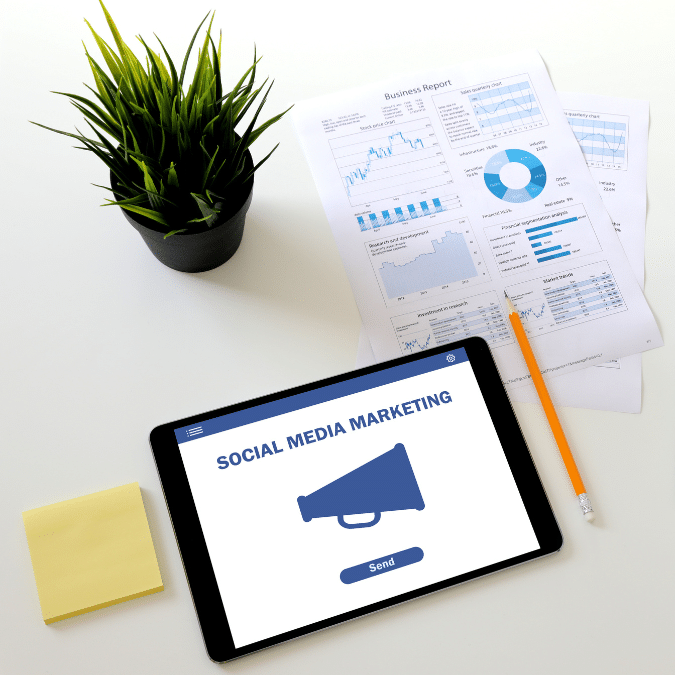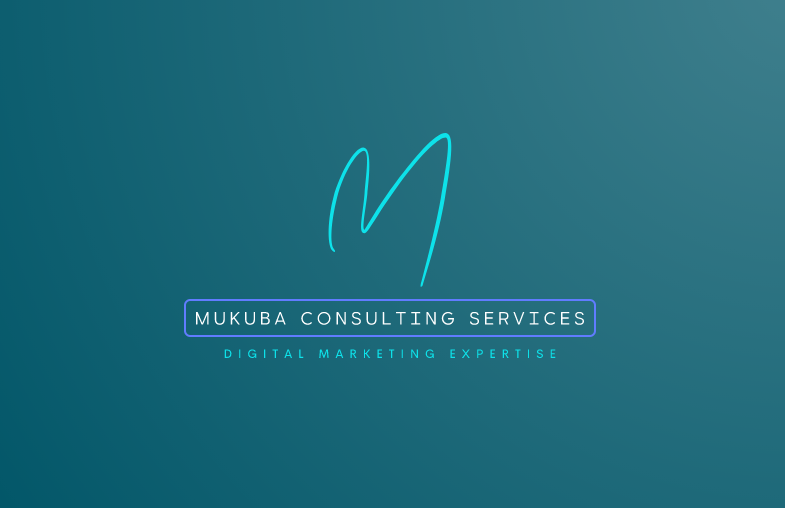A hotel must have a strong digital presence if it wants to attract and retain its guests. Over 95% of tourists now use the internet as a means of information as well as booking, hence creating a comprehensive digital marketing strategy has changed from being an option to a necessity for hotels that don’t want to be left behind.
This in-depth guide is going to take you through several strategies used by hotels’ digital marketing such as search engine optimization (SEO), paid search advertising (PPC), social media marketing, and email marketing, among others; thus enabling you with tools on improving your online visibility and driving more bookings.
Due to the ever-changing consumer trends and preferences over time, digital marketing helps hotels easily adapt. A strong online presence is not anymore just fancy but rather required since people no longer can do without the internet when they are looking for something or making reservations.
This specific guide serves as a blueprint showing various types of digital marketing that are advised for the hospitality industry.
The section on search engine optimization (SEO) details ways in which your website could become more visible and rank higher on search engines so that your deals can be found by customers when they search for a hotel or resort.
Pay-per-click (PPC) advertising allows you to catch people’s attention through ads that are targeted and sponsored, and they are placed strategically across search engines and digital platforms.
In addition, this guide examines the many opportunities for enhancing brand loyalty with your target audience and creating a long-term relationship through social media advertising as well as maximizing influencer marketing and user-generated content.
Email promotion is a tool that can be used to build relationships with past and potential clients by sending them personalized offers in order to encourage repeat business.
By implementing the principles and strategies outlined in this blog, hotels will be able to maximize their digital marketing efforts thereby improving their online presence, increasing bookings, and ultimately ensuring sustainable growth in an increasingly competitive digital environment.
The Significance of Hotel Digital Marketing

But before we get into some detailed strategies, it is important to first understand why exactly hotels need digital marketing so much. Here are several main arguments:
- Increased Online Visibility: With more individuals seeking information about hotels on the web and making reservations online, your hotel needs a strong online presence so that it appears prominently during guest’s search process.
- Direct Bookings: A carefully planned digital campaign has the potential to bring customers right into your hotel booking site; thus reducing the number of bookings through third-party online travel agencies (OTAs) with their commission charges.
- Cost-Effective Advertising: Digital marketing channels usually offer more cost-effective advertising options compared to traditional marketing communications methods, which helps you to communicate with a bigger audience with a smaller budget.
- Targeted Outreach: Digital marketing channels offer you the possibility of segmenting and targeting certain demographics, interests, and behaviors, thus guaranteeing that your marketing campaigns reach the right audience.
- Measurable Results: Digital marketing campaigns give you the ability to track your performance and measure the ROI with the provided detailed analytics and metrics and ultimately make data-driven decisions to improve your strategy.
Search Engine Optimization (SEO) for Hotels

On-Page SEO
On-page SEO means the optimization methods you apply to the content and structure of your hotel’s website. Here are some key on-page SEO strategies:
- Keyword Research: Determine suitable keywords and phrases people are likely to search for hotels in your area and these particular terms will be the ones you will use in your content. Utilize these keywords accordingly in your website’s content, meta tags, and URLs.
- Content Optimization: Develop and post quality, informative, and entertaining content on the hotel and the city attractions as well as the overall travel experience. Optimize this content with relevant keywords, headings, and meta descriptions.
- User Experience: Make sure that your website will have a mobile-friendly version, will have a clear and easy-to-understand design, and will provide a user-friendly experience. Site speed, navigation, and overall usability will give SEO a huge role to play in rankings.
Off-Page SEO
Off-page SEO is about the creation of authority and credibility for the hotel’s website through external signals. Some effective off-page SEO tactics include:
- Link Building: Acquire high-quality backlinks from popular websites in the travel and hospitality industry. This could be done by guest blogging, directory submissions, and by building links with relevant websites and influencers.
- Local SEO: Localize your website for search by claiming and managing your hotel’s listings on platforms like Google My Business, Bing Places, and online directories. Encourage your clients to share their experiences and reviews, which can contribute to your local rankings.
- Social Media Presence: Keep an active presence on the relevant social media channels, share interesting content, and engage with the followers. Social indicators can positively influence your hotel’s search engine ranking.
Pay-Per-Click (PPC) Advertising for Hotels

PPC advertising allows hotels to display sponsored ads on search engines and other platforms, ensuring visibility at the top of search results. Here are some PPC strategies to consider:
Google Ads
Google Ads is the most popular PPC platform, offering various ad formats and targeting options for hotels:
- Search Ads: These text-based ads appear at the top of Google search results when potential guests search for relevant keywords related to your hotel or location.
- Display Ads: Visual ads that can be displayed on websites within the Google Display Network, allowing you to reach potential guests while they browse travel-related content.
- Remarketing Ads: These ads target users who have previously visited your hotel’s website, keeping your brand top-of-mind as they continue their research and booking process.
Other PPC Platforms
While Google Ads dominates the PPC landscape, consider exploring other platforms as well:
- Bing Ads: Microsoft’s advertising platform offers similar features to Google Ads and can be a cost-effective alternative for targeted advertising.
- Social Media Advertising: Platforms like Facebook, Instagram, and Twitter offer robust advertising options, allowing you to target users based on specific demographics, interests, and behaviors.
Social Media Marketing for Hotels

Social media has become an indispensable tool for hotels to engage with potential and existing guests, build brand awareness, drive bookings, and foster long-lasting relationships with their audience.
With billions of active users across various platforms, social media offers a vast and powerful channel for hotels to connect with their target audience and showcase their unique offerings. Here are some effective social media marketing strategies:
Content Creation and Storytelling
Creating captivating visual and written content is at the heart of successful social media marketing for hotels. Focus on showcasing your hotel’s unique selling points, amenities, and experiences through high-quality photos, virtual tours, behind-the-scenes videos, and engaging storytelling.
User-generated content from satisfied guests can also be a powerful tool, as it provides authentic and relatable experiences that resonate with potential guests.
When crafting your content strategy, consider the different platforms and their respective strengths. For instance, Instagram is a highly visual platform that lends itself well to stunning photography and short videos, while Facebook and Twitter are better suited for longer-form content, such as blog posts and articles.
Influencer Marketing

Partnering with travel influencers, bloggers, and social media personalities who align with your hotel’s brand and target audience can be a highly effective way to tap into their engaged following and increase brand awareness.
Influencer marketing allows you to leverage the trust and credibility that these influencers have built with their audiences, which can lead to increased exposure, engagement, and bookings for your hotel.
When selecting influencers to collaborate with, consider their niche, audience demographics, engagement rates, and overall brand fit. Develop mutually beneficial partnerships that allow influencers to authentically showcase your hotel’s offerings while providing them with unique experiences and incentives.
Social Media Advertising and Targeting

While organic social media efforts are crucial, complementing them with targeted advertising campaigns can significantly boost your reach and visibility. Platforms like Facebook, Instagram, and Twitter offer advanced targeting options based on demographics, interests, behaviors, and even travel intent signals, allowing you to precisely target your ideal audience.
Utilize various ad formats, such as carousel ads, video ads, and sponsored posts, to capture attention and drive engagement.
Additionally, leverage retargeting strategies to re-engage users who have previously interacted with your hotel’s website or social media channels, keeping your brand top-of-mind throughout their decision-making process.
Social Listening and Community Engagement

Social media is not just a one-way communication channel; it’s an opportunity to foster meaningful connections and build a loyal community around your hotel brand.
Actively monitor social media channels for mentions of your hotel, relevant industry topics, and conversations related to your target audience. Respond to reviews, inquiries, and comments in a timely and personalized manner, showcasing your commitment to exceptional customer service.
Leverage social listening tools to gain valuable insights into customer sentiment, preferences, and emerging trends within the travel and hospitality industry. Use these insights to inform your content strategy, address potential issues, and continuously improve the guest experience.
Furthermore, encourage user-generated content by running social media contests, campaigns, and incentives that encourage guests to share their experiences and memories with your hotel. This not only creates a sense of community but also provides authentic, relatable content that can be repurposed across your marketing channels.
By implementing a well-rounded social media marketing strategy that encompasses captivating content creation, influencer partnerships, targeted advertising, and community engagement, hotels can effectively increase their online visibility, build brand loyalty, and drive bookings from their target audience.
Email Marketing for Hotels

Email marketing remains a powerful tool for hotels to nurture relationships with past and prospective guests, promote special offers, and drive bookings. Here are some email marketing strategies to consider:
Welcome and Post-Stay Emails
Send welcome emails to new subscribers, providing valuable information about your hotel and its offerings. Additionally, follow up with post-stay emails to gather feedback and encourage repeat bookings.
Promotional Emails
Regularly send promotional emails featuring special offers, package deals, and discounts. Segment your email list based on guest preferences, travel patterns, and past booking history to deliver targeted and personalized offers.
Abandoned Booking Emails
Implement an abandoned booking email campaign to re-engage potential guests who started the booking process but did not complete it. These emails can provide incentives or reminders to encourage them to finalize their reservation.
Personalization and Automation
Leverage email marketing automation tools to personalize your communications based on guest data and behavior. Automated email workflows can nurture leads, send timely reminders, and deliver personalized content tailored to each recipient’s interests and preferences.
Analytics and Measurement

To ensure the success of your hotel digital marketing efforts, it’s crucial to track and analyze relevant metrics. Use tools like Google Analytics, social media analytics, and email marketing metrics to measure the performance of your campaigns and make data-driven decisions for optimization.
Monitor key performance indicators (KPIs) such as website traffic, engagement rates, conversion rates, and return on investment (ROI). Regularly review and analyze this data to identify areas for improvement, refine your strategies, and allocate your marketing budget effectively.
Conclusion
In the competitive hotel industry, implementing a comprehensive digital marketing strategy is essential for attracting and retaining guests.
By leveraging the power of SEO, PPC advertising, social media marketing, email marketing, and analytics, you can increase your hotel’s online visibility, drive direct bookings, and foster long-lasting relationships with customers.
Remember to continuously adapt and refine your approach based on evolving trends, consumer behavior, and performance data to stay ahead of the competition and maximize your hotel’s success in the digital landscape.



